1. Introduction:
Why Certificates Needed for Students Learning, Certificates have become an integral part of the learning journey in modern education. They serve as official recognition of the knowledge, skills, and competencies a student acquires during a course or program. Certification plays a critical role in validating academic achievements and formalizing learning outcomes. Whether earned through school, online platforms, extracurricular activities, or vocational training, certificates represent more than just a piece of paper—they symbolize effort, accomplishment, and growth.
In a world that increasingly values measurable results and standard benchmarks, having certified proof of learning is crucial for students. Certifications also help differentiate one student from another in academic and professional arenas. As education systems become more diverse and skills-based, certificates offer a standardized way to assess and document progress. They are equally important for building confidence in students, fostering motivation, and preparing them for future endeavors. This article explores why certificates are essential in supporting and enhancing student learning and how they influence academic, personal, and career development.
2. Historical Background of Certification in Education
The concept of certification dates back to ancient civilizations where scholars and apprentices received scrolls or letters confirming their expertise. In medieval Europe, guilds issued certificates to skilled artisans who completed training, marking their eligibility to work independently. Religious institutions and early universities also adopted certification as a formal method of acknowledging scholastic achievement. Over time, this evolved into modern diplomas, degrees, and course completion certificates issued by academic bodies.
With the industrial revolution, formal education became more structured, and certification systems expanded to accommodate various professions. The 20th century saw a boom in standardized testing and academic assessments, reinforcing the role of certificates in education. Today, both traditional and online learning environments offer certification for nearly every subject and skill set. These certificates hold value in job markets, academic institutions, and social status, demonstrating one’s qualifications and achievements. Understanding the historical roots of certification helps to appreciate its ongoing relevance in current educational practices and future trends.
3. Certificates as Proof of Knowledge and Skills
Certificates provide tangible proof that a student has completed a course of study and acquired specific knowledge or skills. In a world where verbal claims are often insufficient, certificates offer documented evidence of learning that can be easily verified. For students, this proof is vital when applying to colleges, scholarships, internships, or jobs. A certificate reflects the student’s dedication, attendance, performance, and ability to meet certain educational standards. This can significantly enhance their credibility in academic and professional settings.
For example, language proficiency certificates such as IELTS or TOEFL prove communication skills, while IT certificates like Python or Microsoft validate technical expertise. Even short-term courses and workshops issue certificates that students can add to their educational portfolio. In essence, certificates bridge the gap between informal learning and formal recognition. By certifying learning, educational institutions and organizations lend authority and value to the student’s effort, making these achievements more meaningful and impactful.
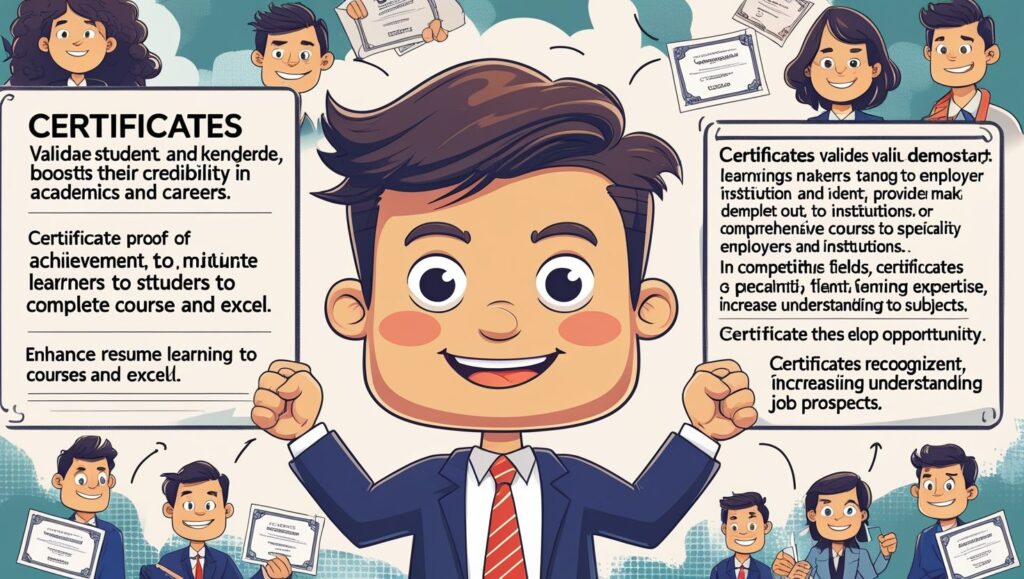
4. Enhancing Student Motivation and Engagement
Why Certificates Needed for Students Learning, Certification can significantly enhance student motivation by providing a clear goal and reward for their efforts. Knowing that their hard work will culminate in a recognized certificate encourages students to remain committed and focused. It creates a sense of purpose and accountability, making learning more structured and goal-oriented. For younger students, receiving a certificate—even for participation or improvement—can be a powerful source of encouragement and self-esteem. For older students, certificates become stepping stones to higher education and career success, which motivates them to pursue academic excellence.
Additionally, certification systems often incorporate milestones and assessments that keep students engaged throughout the learning process. Many educators use certificates to foster healthy competition, which further drives enthusiasm and peer recognition. The visual and ceremonial aspect of certificate distribution also adds a celebratory element to learning, reinforcing positive attitudes towards education. Overall, certificates transform abstract learning goals into concrete accomplishments, making students more proactive and passionate learners.
5. Certificates as Tools for Career Advancement
Certificates are crucial tools for students aiming to advance their careers. In a competitive job market, employers seek candidates with proven qualifications and verified skillsets. Holding relevant certificates gives students a clear edge during hiring processes. They not only demonstrate academic knowledge but also signal dedication, discipline, and a willingness to learn. For instance, a student with a certified digital marketing course is more likely to secure a marketing internship than one without such credentials.
Professional fields such as IT, healthcare, finance, and education often require specific certifications as prerequisites for employment or advancement. Even soft skills like leadership or communication are increasingly being recognized through certificate programs. Furthermore, certificates enhance résumés and LinkedIn profiles, helping students stand out in large applicant pools. Some employers use certification as a benchmark for promotions or salary increments. In essence, certificates serve as professional assets that open doors to better job opportunities, career growth, and lifelong employability.
6. Academic Value and Institutional Recognition
Certificates carry significant academic value as they validate student performance and are often used to award academic credits. Many educational institutions integrate certification within their curriculum to align learning outcomes with assessment. Certificates serve as formal documentation of course completion, grade levels, or co-curricular achievements. This documentation becomes essential during transitions—like moving from high school to college, or from undergraduate to postgraduate studies. Universities often require supporting certificates for admissions, scholarships, and credit transfers. Institutions also recognize certifications from external bodies such as MOOCs (Massive Open Online Courses), professional training centers, or international exam boards.
These additional certificates can supplement a student’s academic portfolio and improve their chances of selection. Furthermore, the practice of issuing and receiving certificates teaches students about academic structure, deadlines, and performance metrics. By acknowledging both curricular and extracurricular achievements, certificates support holistic development and reinforce the importance of academic diligence in a formalized manner.
7. Certificates and Lifelong Learning
In today’s dynamic world, learning doesn’t stop with formal education. Lifelong learning has become essential to keep up with changing knowledge, technologies, and job demands. Certificates play a crucial role in supporting this continuous learning model. Whether a student is pursuing a new language, coding skills, business acumen, or artistic talent, certificates document these efforts and accomplishments. Platforms like Coursera, Udemy, and Khan Academy offer certified courses that students can access at any stage of life.
Why Certificates Needed for Students Learning, Earning certificates through such platforms helps learners build confidence, update their skills, and stay relevant in their fields. For adult learners or returning students, certifications provide a pathway to re-enter academic institutions or career spaces. Moreover, certificates in areas like digital literacy or sustainability often become stepping stones for civic participation and community engagement. By encouraging learners to stay curious and competent, certification systems foster a culture of lifelong learning and personal growth, essential for evolving societies.
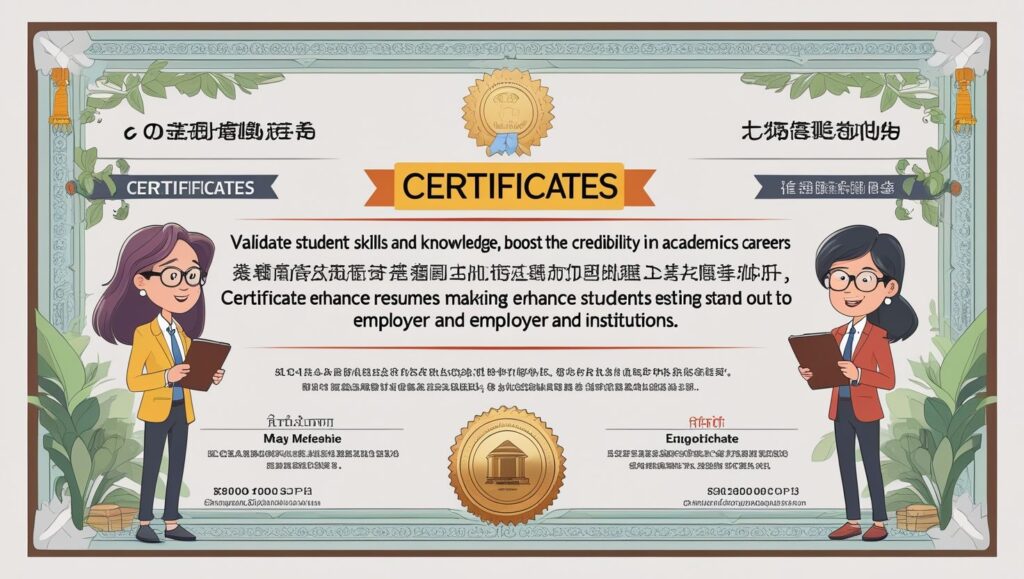
8. Standardization and Quality Assurance
Certificates help ensure standardization and quality assurance in education. Issued by accredited institutions, they reflect that a student has met pre-defined learning outcomes and competencies. This standardization allows for consistent evaluation across different learners and locations. For example, a Cambridge English certificate or a Microsoft Office Specialist certificate has global recognition due to its standardized testing procedures. Certification processes often include assessments, assignments, and practical tasks that maintain academic rigor.
Regulatory bodies also audit institutions for the quality of their certification programs, ensuring integrity and fairness. For students, this means that their achievements are not just recognized locally but also accepted nationally or internationally. Employers and universities rely on certificates as benchmarks for quality learning and skill acquisition. Without such standardization, assessing competence and comparing qualifications would become subjective and unreliable. Therefore, certificates serve as trusted tools for quality assurance in both academic and professional contexts.
9. Digital Credentials and E-Certificates
With the digital revolution, e-certificates and digital credentials have emerged as modern alternatives to traditional paper-based certificates. These are secure, easily shareable, and eco-friendly. Students can receive digital certificates via email or educational platforms and add them directly to their LinkedIn profiles, digital portfolios, or job applications. Many institutions now issue blockchain-based credentials that are tamper-proof and globally verifiable. E-certificates also simplify documentation for academic or employment verification, reducing administrative hurdles.
Platforms like Credly, Accredible, and Badgr allow learners to manage and showcase their digital badges or certificates in a unified space. This transformation aligns well with the learning preferences of tech-savvy students who value mobility and efficiency. Additionally, digital credentials enable micro-credentialing—students can collect certificates for small learning units, which cumulatively build toward larger certifications. In summary, digital certificates offer a fast, flexible, and credible way to record and demonstrate student learning in today’s digital age.
10. Certificates in Co-curricular and Extra-curricular Activities
Certificates are not limited to academic subjects—they also validate co-curricular and extracurricular achievements. Whether it’s participating in debates, sports, art competitions, science fairs, or leadership camps, students benefit from receiving certificates that recognize these activities. These certifications showcase a student’s all-round development and unique strengths beyond classroom learning. They are particularly useful for holistic assessments in college admissions, where institutions look for more than just academic scores.
Students who engage in volunteering, environmental campaigns, or innovation contests often receive community service or special achievement certificates, which further enrich their profiles. These acknowledgments encourage students to step out of their academic comfort zones and explore diverse interests. Additionally, such certificates serve as reminders of positive experiences, milestones, and personal growth moments. They build a well-rounded educational portfolio that reflects character, creativity, and teamwork—qualities highly valued in higher education and the workplace.
11. Certificates as Evaluation and Feedback Tools
Why Certificates Needed for Students Learning, Certificates are often the result of a structured evaluation process and serve as a form of feedback. They confirm that a student has met certain benchmarks in knowledge, attendance, or performance. This process reinforces learning goals and helps students reflect on their progress. Unlike informal feedback, a certificate formalizes assessment and adds value to the student’s efforts. It also guides educators in determining student strengths and areas for improvement.
In online learning, where face-to-face interaction is limited, certificates act as feedback proxies that assure students their learning is being acknowledged. Some certificates come with score breakdowns or competency tags that provide deeper insights into student performance. Teachers may use such certificates as part of academic records or to recommend students for scholarships and opportunities. In this way, certificates serve dual purposes: they recognize success and inform future learning strategies, contributing to a more effective and responsive education system.
12. Global Acceptance and International Opportunities
Certificates offer global recognition of a student’s learning and can unlock international educational and career opportunities. Institutions abroad often require certified proof of academic performance, language proficiency, or specific skills for admissions and scholarships. Certificates like IELTS, SAT, TOEFL, IB, or AP scores are universally accepted and form key components of international student applications. Similarly, technical certifications like Cisco, Oracle, or Adobe are valued across countries and industries. With the global economy becoming increasingly interconnected, having certified credentials allows students to compete in an international arena.
Many international exchange programs and internships also prioritize candidates with certified skills or achievements. Additionally, embassies and immigration departments may ask for educational certificates during visa processing. In this context, certificates act as passports to global opportunities, validating students’ readiness for international experiences. The universality and credibility of certified documentation thus empower students to transcend geographic boundaries in pursuit of learning and career goals.
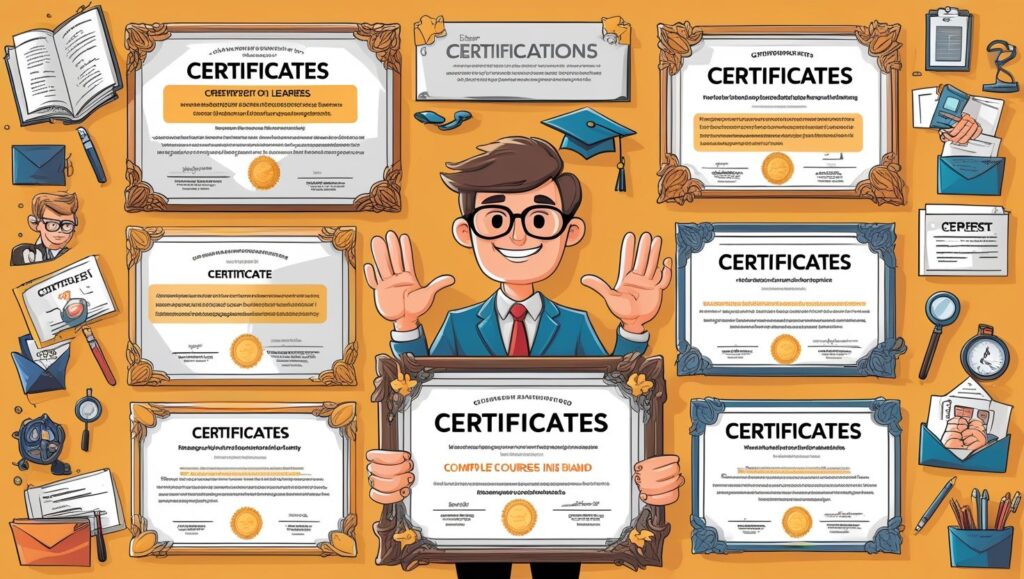
13. Certificates and Inclusive Education
Certificates support inclusive education by recognizing learning across diverse student populations, including those with disabilities, socio-economic disadvantages, or alternative learning needs. Inclusive education emphasizes equal access and participation for all learners. When such students receive certificates for completing courses or excelling in specific skills, it validates their efforts and boosts self-esteem. It assures them that their contributions and learning are valued equally. Educational institutions increasingly provide customized certificate programs and support systems to accommodate diverse learners.
Why Certificates Needed for Students Learning, For example, vocational and skills-based certifications are offered to students with different needs to prepare them for employment. NGOs and social organizations also use certificate-based programs to empower marginalized youth and integrate them into the workforce. By acknowledging learning achievements regardless of background or ability, certification becomes a tool for social inclusion and empowerment. It enables education systems to move beyond one-size-fits-all models and build more equitable learning environments.
14. Addressing Fraud and Misuse of Certificates
While certificates are valuable, concerns about fraud and misuse exist. Fake certificates, dishonest endorsements, and unaccredited institutions issuing unverifiable credentials undermine the credibility of legitimate achievements. This not only hurts deserving students but also misleads employers and institutions. To counter this, verification systems and digital authentication methods like QR codes, blockchain, and centralized databases have been introduced. Governments and accrediting agencies now maintain online portals for certificate verification.
Students and parents must be cautious about the source and credibility of the certifying body. Institutions are also becoming more vigilant in verifying external certificates during admissions and hiring. Teaching students the value of integrity and honesty in academic achievements is equally important. Promoting ethical practices and transparent evaluation methods will ensure certificates continue to serve as trusted indicators of learning and performance. Thus, maintaining the sanctity of certification is vital for preserving its educational and professional worth.
15. Conclusion: Certificates as Cornerstones of Learning
Certificates play an indispensable role in supporting, recognizing, and validating student learning across all levels of education. They offer a structured, credible, and motivating way to assess knowledge, document achievements, and empower students in their academic and career journeys. From increasing motivation and improving employability to ensuring global recognition and inclusivity, certificates bridge the gap between effort and acknowledgment. In today’s digital and skill-oriented world, the importance of certification continues to grow.
Why Certificates Needed for Students Learning, However, it must be accompanied by quality assurance, ethical practices, and equitable access. Institutions, educators, and learners must collectively work to ensure certificates reflect true learning and remain tools for growth and opportunity. Ultimately, certificates not only mark the completion of a learning journey but also signal the beginning of new possibilities and lifelong achievements.
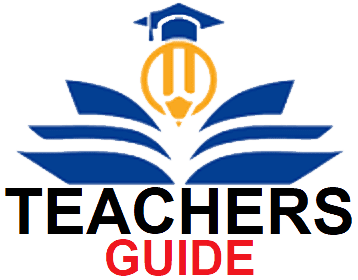
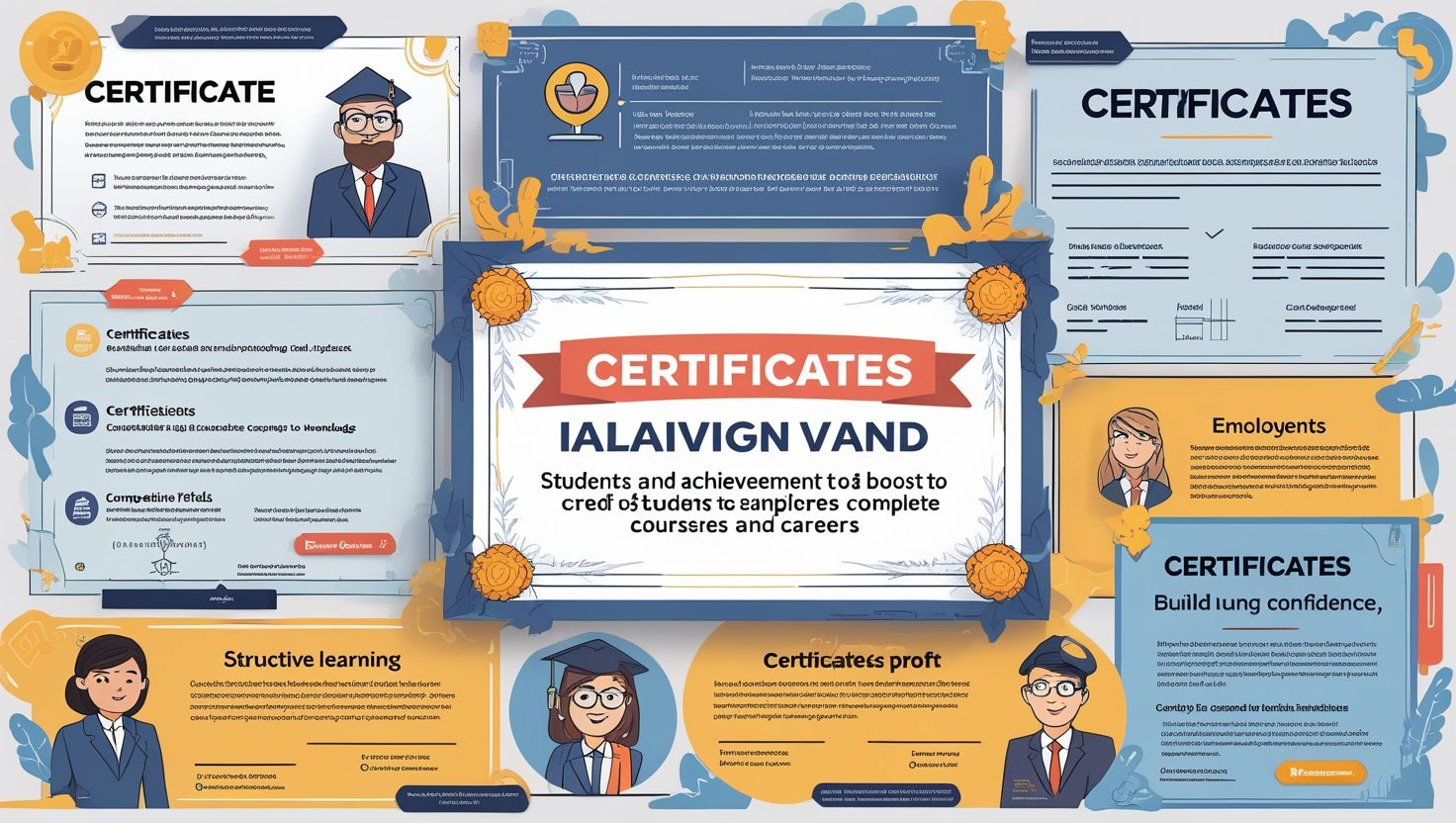
451nq5
Good blog! I really love how it is easy on my eyes and the data are well written. I am wondering how I might be notified when a new post has been made. I’ve subscribed to your RSS feed which must do the trick! Have a nice day!
Nikmati Permainan Slot Gacor di sigmaslot dengan RTP Tinggi dan Jackpot Menggoda
Make mornings more adorable with this Hello Kitty alarm clock CD player. Ideal for kids and collectors alike, this charming CD clock radio includes all the basics: AM/FM radio, programmable CD playback, and reliable alarm settings. Wake up to your favorite CD or a cheerful radio station with built-in stereo sound. A large digital display and simple controls make it easy to use, even for younger users. Combining cuteness with functionality, it’s a top pick among themed alarm clocks with CD players that bring fun and joy to your space.
incrível este conteúdo. Gostei bastante. Aproveitem e vejam este conteúdo. informações, novidades e muito mais. Não deixem de acessar para se informar mais. Obrigado a todos e até mais. 🙂
I’m definitely going to apply what I’ve learned here.
I like how you presented both sides of the argument fairly.
Your writing always inspires me to learn more.
Thanks for making this easy to understand even without a background in it.
This was incredibly useful and well written.
I love how clearly you explained everything. Thanks for this.
I learned something new today. Appreciate your work!
You bring a fresh voice to a well-covered topic.
I enjoyed every paragraph. Thank you for this.
You write with so much clarity and confidence. Impressive!
You’ve clearly done your research, and it shows.
I enjoyed your take on this subject. Keep writing!
The way you write feels personal and authentic.
This made me rethink some of my assumptions. Really valuable post.
I feel more confident tackling this now, thanks to you.
Great post! I’m going to share this with a friend.
I appreciate the depth and clarity of this post.
This post gave me a new perspective I hadn’t considered.
Thank you for making this topic less intimidating.
I enjoyed your perspective on this topic. Looking forward to more content.
Your articles always leave me thinking.
I love how clearly you explained everything. Thanks for this.
I like how you presented both sides of the argument fairly.
Thank you for covering this so thoroughly. It helped me a lot.
Thanks for making this easy to understand even without a background in it.
This content is gold. Thank you so much!
Your tips are practical and easy to apply. Thanks a lot!
This helped clarify a lot of questions I had.
I learned something new today. Appreciate your work!
Great points, well supported by facts and logic.
This topic really needed to be talked about. Thank you.
You write with so much clarity and confidence. Impressive!
You’ve done a great job with this. I ended up learning something new without even realizing it—very smooth writing!
This gave me a whole new perspective. Thanks for opening my eyes.
I always look forward to your posts. Keep it coming!
You’ve sparked my interest in this topic.
I enjoyed every paragraph. Thank you for this.
What I really liked is how easy this was to follow. Even for someone who’s not super tech-savvy, it made perfect sense.
I appreciate how genuine your writing feels. Thanks for sharing.
You clearly know your stuff. Great job on this article.
Thanks for addressing this topic—it’s so important.
Posts like this are why I keep coming back. It’s rare to find content that’s simple, practical, and not full of fluff.
You’ve done a great job with this. I ended up learning something new without even realizing it—very smooth writing!
I learned something new today. Appreciate your work!
This topic really needed to be talked about. Thank you.
Your tips are practical and easy to apply. Thanks a lot!
You clearly know your stuff. Great job on this article.
This made me rethink some of my assumptions. Really valuable post.
So simple, yet so impactful. Well written!
This helped clarify a lot of questions I had.
Thanks for taking the time to break this down step-by-step.
Thanks for making this so reader-friendly.
Your articles always leave me thinking.
I appreciate the depth and clarity of this post.
This was a great reminder for me. Thanks for posting.
This topic is usually confusing, but you made it simple to understand.
This topic really needed to be talked about. Thank you.
You explained it in such a relatable way. Well done!
This helped clarify a lot of questions I had.
Your advice is exactly what I needed right now.
Thank you for being so generous with your knowledge.
I love how well-organized and detailed this post is.
Your writing always inspires me to learn more.
Such a thoughtful and well-researched piece. Thank you.
Such a simple yet powerful message. Thanks for this.
You really know how to connect with your readers.
What a helpful and well-structured post. Thanks a lot!
You write with so much clarity and confidence. Impressive!
I learned something new today. Appreciate your work!
Thanks for addressing this topic—it’s so important.
I really needed this today. Thank you for writing it.
I wasn’t sure what to expect at first, but this turned out to be surprisingly useful. Thanks for taking the time to put this together.
I never thought about it that way before. Great insight!
I enjoyed your perspective on this topic. Looking forward to more content.
I appreciate the depth and clarity of this post.
Thanks for making this easy to understand even without a background in it.
I enjoyed your perspective on this topic. Looking forward to more content.
You explained it in such a relatable way. Well done!
Thanks for sharing your knowledge. This added a lot of value to my day.
Keep educating and inspiring others with posts like this.
I love the clarity in your writing.
I’ve read similar posts, but yours stood out for its clarity.
I enjoyed your take on this subject. Keep writing!
I really needed this today. Thank you for writing it.
Your breakdown of the topic is so well thought out.
I appreciate the honesty and openness in your writing.
Excellent work! Looking forward to future posts.
You’ve done a great job with this. I ended up learning something new without even realizing it—very smooth writing!
This gave me a whole new perspective. Thanks for opening my eyes.
This content is really helpful, especially for beginners like me.
Your writing always inspires me to learn more.
I wish I had read this sooner!
I like how you presented both sides of the argument fairly.
This gave me a lot to think about. Thanks for sharing.
Great post! I’m going to share this with a friend.
You have a real gift for explaining things.
Thank you for offering such practical guidance.
This content is gold. Thank you so much!
This is exactly the kind of content I’ve been searching for.
I agree with your point of view and found this very insightful.
I appreciate the honesty and openness in your writing.
I appreciate the depth and clarity of this post.
Thanks for taking the time to break this down step-by-step.
You’re doing a fantastic job with this blog.
You bring a fresh voice to a well-covered topic.
Your content never disappoints. Keep up the great work!
I really needed this today. Thank you for writing it.
It’s great to see someone explain this so clearly.
Thank you for making this topic less intimidating.
Your passion for the topic really shines through.
What a great resource. I’ll be referring back to this often.
This was incredibly useful and well written.
I enjoyed your take on this subject. Keep writing!
Such a thoughtful and well-researched piece. Thank you.
Your tips are practical and easy to apply. Thanks a lot!
Such a refreshing take on a common topic.
This was really well done. I can tell a lot of thought went into making it clear and user-friendly. Keep up the good work!
I like how you kept it informative without being too technical.
I appreciate how genuine your writing feels. Thanks for sharing.
Very relevant and timely content. Appreciate you sharing this.
This was a very informative post. I appreciate the time you took to write it.
Excellent work! Looking forward to future posts.
Thank you for offering such practical guidance.
I like how you presented both sides of the argument fairly.
I’m usually to blogging and i really recognize your content. The article has actually peaks my interest. I am going to bookmark your site and preserve checking for new information.
My developer is trying to persuade me to move to .net from PHP. I have always disliked the idea because of the expenses. But he’s tryiong none the less. I’ve been using Movable-type on a number of websites for about a year and am concerned about switching to another platform. I have heard very good things about blogengine.net. Is there a way I can transfer all my wordpress posts into it? Any help would be really appreciated!
4dpjaj
eq529d
I?¦m not certain where you’re getting your information, but good topic. I needs to spend some time finding out more or working out more. Thank you for excellent information I used to be looking for this info for my mission.
I love it when people come together and share opinions, great blog, keep it up.